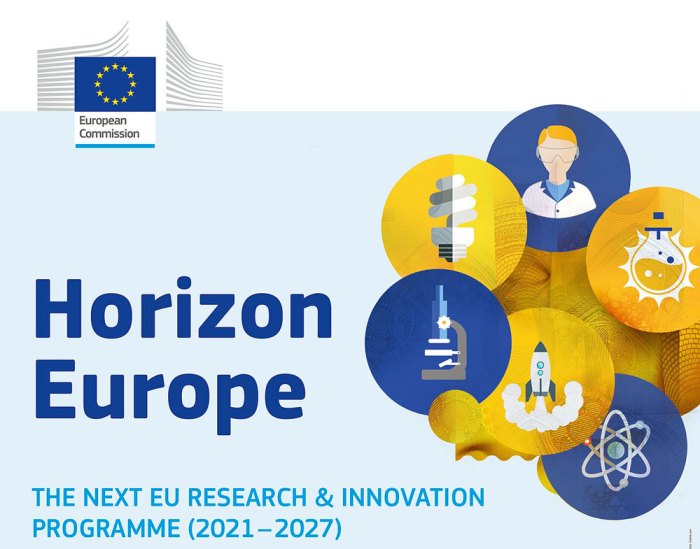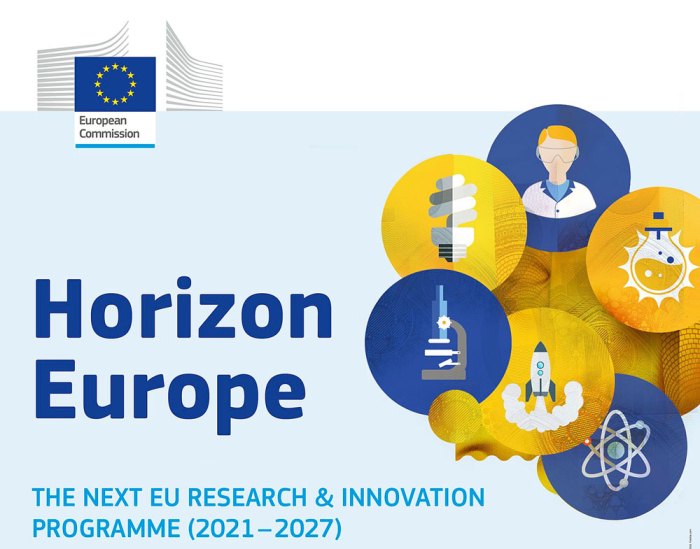Blocking the UK from EU Horizon programs is bad for everyone. This decision has far-reaching consequences, impacting not just UK research and innovation but also the entire European scientific community. It’s a missed opportunity for collaboration and progress, a decision that ultimately hinders scientific advancements and economic growth.
Horizon programs have been instrumental in fostering groundbreaking research and technological development across Europe. The UK has been a significant contributor to these programs, participating in numerous projects and reaping the benefits of international collaboration. However, the UK’s exclusion from Horizon programs threatens to disrupt this partnership, potentially hindering future discoveries and economic prosperity.
The Impact on UK Research and Innovation

The UK’s exclusion from Horizon Europe, the EU’s flagship research and innovation program, has significant implications for the country’s scientific advancements and technological development. This move disrupts established collaborations and limits access to crucial funding opportunities, potentially hindering the UK’s ability to remain at the forefront of global research.
The Role of Horizon Programs
Horizon programs play a vital role in fostering scientific advancements and technological development by:* Providing funding for research projects:Horizon programs offer substantial funding to support research projects across various disciplines, from fundamental science to applied technologies. This funding enables researchers to pursue ambitious projects, acquire cutting-edge equipment, and collaborate with international partners.
Encouraging collaboration
Horizon programs emphasize collaboration between researchers from different countries and institutions, promoting knowledge sharing and the development of joint solutions to global challenges. This cross-border collaboration fosters a vibrant research ecosystem and accelerates scientific progress.
Supporting innovation
Horizon programs promote the translation of research findings into real-world applications. They encourage the development of new technologies, products, and services that address societal needs and drive economic growth.
Examples of UK Research Projects Funded by Horizon
The UK has been a significant beneficiary of Horizon programs, with numerous research projects receiving funding. Some notable examples include:* Graphene Flagship:This project, which received €1 billion in funding, brought together over 150 research groups from across Europe to develop and explore the potential of graphene, a revolutionary material with exceptional properties.
The UK played a key role in this project, with several UK universities and companies participating in research and development activities.
Human Brain Project
This project aimed to create a detailed simulation of the human brain, leveraging high-performance computing and advanced neuroscience techniques. UK researchers contributed significantly to this project, developing innovative tools and methodologies for brain modeling and analysis.
Future and Emerging Technologies (FET) Open
This program supports high-risk, high-reward research projects with the potential for significant breakthroughs. The UK has been a major recipient of FET Open funding, with numerous projects tackling challenging scientific questions in areas such as artificial intelligence, quantum computing, and nanotechnology.
Consequences of UK’s Exclusion from Horizon Programs
The UK’s exclusion from Horizon programs could have significant consequences for its research capabilities:* Reduced funding opportunities:UK researchers will lose access to a significant source of funding, limiting their ability to undertake ambitious research projects and compete with their international counterparts. This could lead to a decline in research output and innovation.
Diminished collaboration
The UK’s isolation from Horizon programs will hinder its ability to collaborate with researchers from other European countries. This will limit access to expertise, resources, and knowledge sharing, potentially slowing down scientific progress.
Erosion of research excellence
The UK’s exclusion from Horizon programs could lead to a brain drain as talented researchers seek opportunities in other countries with better access to funding and collaboration networks. This could erode the UK’s research excellence and diminish its international standing in science and technology.
The Economic Implications
The decision to exclude the UK from Horizon Europe has significant economic implications, impacting both the UK and the EU. While the UK government has proposed alternative funding schemes, the potential benefits of participating in Horizon Europe remain substantial, making the exclusion a missed opportunity for scientific advancement and economic growth.
The Economic Benefits of International Scientific Collaboration
International scientific collaboration is crucial for driving innovation and economic growth. Horizon Europe, the EU’s flagship research and innovation program, fosters collaboration among researchers from different countries, leading to groundbreaking discoveries, technological advancements, and economic benefits. The program’s success is evident in its track record of supporting groundbreaking research projects, attracting global talent, and fostering innovation.
Horizon Europe acts as a catalyst for economic growth, generating new industries, creating jobs, and boosting competitiveness.
Potential Losses for the UK
The UK’s exclusion from Horizon Europe presents a significant economic risk, potentially leading to:
- Reduced Investment:The UK’s exclusion could deter international investors from funding research projects in the UK, leading to a decrease in overall research investment.
- Slower Job Creation:The UK could experience slower job creation in science and technology sectors due to reduced research and development activity.
- Diminished Economic Growth:The UK’s exclusion could hinder its ability to compete in global markets, potentially slowing down economic growth.
Comparison of Economic Impacts
The economic impact of the UK’s exclusion from Horizon Europe is substantial. While the UK government has proposed alternative funding schemes, they are unlikely to fully compensate for the loss of access to Horizon Europe’s vast resources and collaborative opportunities.
The UK’s participation in Horizon Europe would have provided access to a pool of €95.5 billion in funding, offering significant opportunities for UK researchers and businesses to collaborate with their European counterparts.
The economic benefits of participating in Horizon Europe far outweigh the potential advantages of the UK’s alternative funding schemes. The exclusion could lead to a decline in research funding, a decrease in job creation, and a slowdown in economic growth.
The Wider Scientific Community: Blocking The Uk From Eu Horizon Programs Is Bad For Everyone
The exclusion of the UK from Horizon Europe has had a significant impact on the wider scientific community, disrupting established collaborations and raising concerns about the future of European research. The implications extend beyond the immediate financial losses, affecting the flow of knowledge, the development of new technologies, and the overall health of the European research landscape.
Impact on International Scientific Collaborations
The UK’s participation in Horizon Europe was crucial for fostering international scientific collaborations. The program facilitated joint research projects, the sharing of expertise, and the development of shared research infrastructures. The UK’s exclusion has disrupted these established partnerships, leading to uncertainty and a potential decline in collaboration.
- The UK’s departure from Horizon Europe has created a significant barrier to scientific collaboration. The program provided a platform for researchers from different countries to work together on projects of mutual interest. This has led to a decrease in joint research initiatives and a decline in the exchange of knowledge between UK and EU scientists.
Investigate the pros of accepting dummy guide to infecting apple mac with malware in your business strategies.
- Many UK researchers have expressed concerns about the future of their ongoing collaborations with EU partners. The lack of access to Horizon Europe funding has made it difficult for them to continue their research projects. This uncertainty has also discouraged new collaborations, as researchers are hesitant to invest time and resources in projects that may be disrupted by future political developments.
The Potential for Fragmentation in the European Research Landscape
The UK’s exclusion from Horizon Europe has raised concerns about the potential for fragmentation within the European research landscape. The program has played a significant role in fostering a unified research environment across Europe, but the UK’s departure has created a divide.
This fragmentation could lead to a decline in the quality and competitiveness of European research.
- The UK’s exclusion from Horizon Europe has created a divide between UK and EU researchers. This divide could lead to a decline in the exchange of knowledge and expertise, as well as a decrease in joint research projects. The potential for fragmentation could also lead to a duplication of research efforts, as different countries pursue their own research agendas.
- The UK’s departure has also created a sense of uncertainty among EU researchers. They are concerned about the future of their collaborations with UK researchers and the potential impact on the overall health of the European research landscape. This uncertainty could lead to a decline in investment in research and development, as well as a decrease in the attractiveness of Europe as a destination for talented researchers.
Perspectives from Leading Scientists and Researchers
Leading scientists and researchers in the UK and EU have expressed concerns about the impact of the UK’s exclusion from Horizon Europe. They have highlighted the importance of international scientific collaboration and the potential for fragmentation within the European research landscape.
“The UK’s exclusion from Horizon Europe is a major setback for European science. It will make it harder for us to attract the best talent and compete with other research powerhouses around the world.”
Professor [Name], a leading researcher in the field of [Field]
“The UK’s departure from Horizon Europe is a loss for both the UK and the EU. It will make it harder for us to collaborate on important research projects and to share knowledge and expertise.” Dr. [Name], a leading scientist in the field of [Field]
The Political Context

The UK’s exclusion from Horizon Europe programs is a direct consequence of the complex political landscape surrounding Brexit. The decision to leave the European Union, coupled with ongoing negotiations and disagreements over the terms of the UK’s departure, has created a strained relationship between the UK and the EU, impacting various areas of cooperation, including scientific research.
The UK’s Decision to Leave the EU
The UK’s decision to leave the EU, commonly known as Brexit, was driven by a range of factors, including concerns about immigration, sovereignty, and the perceived influence of EU regulations. This decision, however, had significant implications for the UK’s participation in EU programs, including Horizon Europe.
The UK’s departure from the EU created a new set of rules and regulations, requiring the UK to negotiate its relationship with the EU in various areas, including scientific research and innovation.
Negotiations and Disagreements
The negotiations surrounding the UK’s exit from the EU were complex and protracted, resulting in disagreements on various issues, including the role of the European Court of Justice in resolving disputes related to the Northern Ireland Protocol. These disagreements contributed to a breakdown in trust between the UK and the EU, making it challenging to reach an agreement on the UK’s participation in Horizon Europe.
The EU, in response to the UK’s actions, deemed it necessary to exclude the UK from Horizon Europe until these issues are resolved.
Potential for Future Negotiations and a Possible Return
The UK’s exclusion from Horizon Europe has prompted discussions about the potential for future negotiations and a possible return. However, the current political climate suggests that a return to Horizon Europe in the near future is unlikely. The UK’s decision to trigger Article 16 of the Northern Ireland Protocol, which would have unilaterally suspended parts of the agreement, further strained relations with the EU.
The EU has expressed its disappointment and concern over this action, making it less likely to engage in constructive discussions regarding the UK’s participation in Horizon Europe until the UK demonstrates a willingness to uphold its commitments under the Northern Ireland Protocol.
Implications for Future International Collaborations
The UK’s exclusion from Horizon Europe has significant implications for future international collaborations in research and innovation. The UK’s research community, which has traditionally benefited from strong partnerships with EU institutions and researchers, faces challenges in accessing funding and collaborating on projects within the EU framework.
The UK’s exclusion from Horizon Europe also sends a message to the global scientific community that the UK may not be a reliable partner for international collaborations, potentially discouraging researchers from seeking partnerships with UK institutions.
Alternative Funding Mechanisms
The UK’s exclusion from Horizon Europe has forced the government and research institutions to explore alternative funding mechanisms to sustain research and innovation. While Horizon Europe offered unparalleled opportunities for collaboration and funding, the UK must now turn to other sources to maintain its scientific prowess.
Alternative Funding Sources
The UK government has Artikeld several alternative funding sources to mitigate the impact of Horizon Europe exclusion. These include:
- Increased investment in UK Research and Innovation (UKRI): The government has committed to increasing funding for UKRI, which will be used to support research projects across various disciplines. This includes the £800 million Future Fund, designed to support innovative businesses facing challenges due to the pandemic, and the £2.2 billion “Levelling Up” fund, which aims to boost regional economies through investment in research and infrastructure.
- Strengthening bilateral collaborations: The UK is actively seeking to establish stronger research partnerships with other countries, including the US, Canada, Japan, and Australia. These collaborations will involve joint funding initiatives, exchange programs, and research projects. For instance, the UK has signed a joint research agreement with the US National Science Foundation, which will support collaborative projects in areas like artificial intelligence and quantum computing.
- Developing new funding schemes: The government is also exploring the creation of new funding schemes specifically designed to replace Horizon Europe. This includes the “Global Science Research Fund,” which aims to support international collaborations in areas of strategic importance to the UK.
Effectiveness of Alternatives
The effectiveness of these alternatives compared to Horizon Europe remains to be seen. While the increased investment in UKRI provides a significant boost to research funding, it may not fully compensate for the loss of access to Horizon Europe’s extensive network and collaborative opportunities.
The UK government has pledged to increase funding for UKRI, but it remains unclear whether this will be enough to offset the loss of Horizon Europe funding.
The effectiveness of bilateral collaborations will depend on the strength of the partnerships and the alignment of research priorities. While these collaborations offer potential for innovation, they may not be as comprehensive as Horizon Europe’s pan-European approach.The success of new funding schemes will hinge on their design and implementation.
The government must ensure that these schemes are attractive to researchers and provide adequate support for research projects.
Challenges and Opportunities, Blocking the uk from eu horizon programs is bad for everyone
Relying on alternative funding mechanisms presents both challenges and opportunities for the UK research landscape.
Challenges
- Reduced access to European research infrastructure: The UK’s exclusion from Horizon Europe limits its access to cutting-edge research facilities and equipment available across Europe. This could hinder progress in certain research areas and limit the UK’s ability to participate in collaborative projects.
- Increased competition for funding: The UK will face increased competition for research funding as it competes with other countries for limited resources. This could lead to a more challenging environment for securing funding and potentially impact the number of research projects that can be undertaken.
- Maintaining scientific leadership: The UK faces the challenge of maintaining its scientific leadership in the face of reduced access to European research networks and funding. This could potentially impact the UK’s ability to attract top talent and contribute to global scientific advancements.
Opportunities
- Developing a more independent research agenda: The UK’s exclusion from Horizon Europe presents an opportunity to develop a more independent research agenda that aligns with its national priorities. This could lead to greater focus on areas of strategic importance to the UK, such as artificial intelligence, climate change, and healthcare.
- Strengthening international collaborations: The need to seek alternative funding sources provides an opportunity to strengthen research collaborations with countries outside of Europe. This could lead to the development of new partnerships and the exchange of knowledge across diverse scientific communities.
- Investing in emerging technologies: The UK can use this opportunity to invest in emerging technologies and areas of research that are strategically important for its future economic growth. This could include areas like quantum computing, synthetic biology, and advanced materials.
The Future of UK Research and Innovation
The UK’s decision to leave Horizon Europe has created a significant challenge for its research and innovation landscape. The UK must now chart a course to maintain its scientific competitiveness in the absence of this crucial collaboration platform.
A Roadmap for Maintaining Scientific Competitiveness
The UK needs a comprehensive strategy to navigate the new reality of being outside Horizon Europe. This roadmap should focus on building upon existing strengths, fostering new collaborations, and investing strategically in research and innovation.
- Strengthening UK-based Research Infrastructure:The UK has world-class research facilities. The government should invest in expanding and modernizing these facilities to attract international talent and facilitate cutting-edge research. For example, the UK could focus on developing advanced computing infrastructure, expanding its national research network, and supporting the development of new research centers in key areas like artificial intelligence, quantum computing, and life sciences.
- Enhancing International Collaboration:The UK should actively seek out new research partnerships with countries outside the EU. This could involve developing bilateral agreements, joining international research consortia, and fostering collaborations with leading research institutions worldwide. For example, the UK could strengthen its research ties with the United States, Japan, and other key scientific partners.
- Investing in Talent and Skills Development:The UK needs to ensure that its research workforce is equipped with the skills and knowledge needed to compete in the global research landscape. This includes supporting postgraduate education, encouraging research mobility, and investing in training programs for researchers in emerging fields.
For example, the UK could offer scholarships for international students to pursue research degrees in the UK, create programs to support researchers returning from overseas, and invest in training programs for researchers in areas like data science and artificial intelligence.
- Prioritizing Strategic Research Areas:The UK should identify and invest in research areas that have the potential for significant economic and societal impact. This could include areas like clean energy, biotechnology, artificial intelligence, and advanced materials. The government should provide targeted funding and support to researchers working in these areas, encouraging them to translate their discoveries into practical applications.
For example, the UK could establish a national fund to support research in clean energy technologies, provide grants for companies developing new biotech applications, and create a national center for artificial intelligence research.
Strategies for Fostering Long-Term Research and Innovation
A long-term vision for UK research and innovation requires a multi-faceted approach that encompasses policy, funding, and infrastructure.
- Creating a Favorable Environment for Innovation:The UK government should implement policies that encourage innovation and entrepreneurship. This could include tax incentives for research and development, simplifying regulatory processes for new technologies, and supporting the growth of startup ecosystems. For example, the UK could introduce a tax credit for businesses investing in research and development, streamline the process for obtaining permits for clinical trials, and establish a national fund to support early-stage technology companies.
- Promoting Open Science and Collaboration:The UK should embrace open science principles to foster collaboration and accelerate research progress. This could involve making research data and publications more readily available, encouraging open access publishing, and promoting collaborative research projects. For example, the UK could establish a national open data platform, provide funding for open access publications, and support the development of collaborative research platforms.
- Building a Skilled Workforce:The UK needs to invest in education and training programs to develop a highly skilled workforce for the future. This includes supporting STEM education at all levels, promoting apprenticeships in science and engineering, and providing opportunities for lifelong learning.
For example, the UK could increase funding for STEM education in schools, create more apprenticeship programs in science and engineering, and offer online courses and training programs for professionals in emerging fields.
Re-engagement with the EU in Research and Innovation
The UK’s participation in Horizon Europe is crucial for its long-term research and innovation success. Re-engaging with the EU in this area would offer several benefits:
- Access to Leading Research Infrastructure and Expertise:Horizon Europe provides access to world-class research infrastructure and expertise across the EU. This would allow UK researchers to collaborate with leading scientists and institutions, enhancing the quality and impact of their work. For example, UK researchers could participate in large-scale research projects at European facilities like CERN, the European Space Agency, and the European Molecular Biology Laboratory.
- Strengthening International Collaboration:Re-joining Horizon Europe would facilitate greater collaboration with EU researchers, fostering joint projects and knowledge exchange. This would contribute to the development of new technologies, solutions, and breakthroughs. For example, UK researchers could participate in collaborative projects on topics like climate change, artificial intelligence, and healthcare, sharing expertise and resources with their EU counterparts.
- Boosting UK Research and Innovation:Access to Horizon Europe funding would provide a significant boost to UK research and innovation. This funding would support research projects, develop new technologies, and create jobs in science and engineering. For example, the UK could receive funding for research projects in areas like clean energy, biotechnology, and artificial intelligence, leading to the development of new technologies and solutions.





